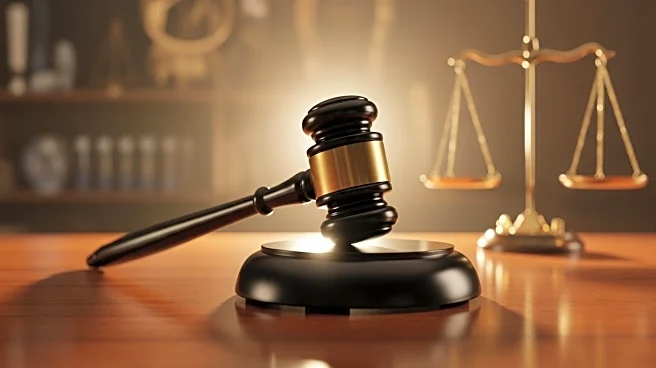What is the story about?
What's Happening?
President Trump faced a legal setback as Judge Steven Merryday dismissed his defamation lawsuit against the New York Times. The judge ruled that the complaint did not meet the requirements of Rule 8 of the Federal Rules of Civil Procedure, which mandates a 'short and plain statement of the claim.' The 85-page complaint was criticized for its excessive praise of President Trump's achievements and personal brand, which the judge deemed superfluous. The lawsuit was filed in the Tampa Division of the Middle District of Florida, rather than the Southern District where Trump resides. The dismissal requires the plaintiff to amend the complaint within 28 days, limiting the revised filing to 40 pages.
Why It's Important?
The dismissal of President Trump's lawsuit against the New York Times highlights the challenges faced by public figures in pursuing defamation claims. The ruling underscores the importance of adhering to procedural rules in legal filings, which can impact the outcome of high-profile cases. This development may influence how similar cases are approached by legal teams representing public figures, emphasizing the need for concise and relevant arguments. The case also reflects ongoing tensions between President Trump and major media outlets, which have been a recurring theme throughout his political career.
What's Next?
President Trump's legal team has 28 days to amend the complaint, adhering to the page limit set by Judge Merryday. The revised filing will need to focus on substantive legal arguments rather than extensive personal accolades. The outcome of this case could set a precedent for future defamation suits involving public figures and media organizations. Stakeholders, including media outlets and legal experts, will be closely monitoring the developments to assess potential impacts on media freedom and defamation law.
Beyond the Headlines
The case raises questions about the balance between free speech and defamation, particularly in the context of political figures. It highlights the legal complexities involved in defamation suits and the role of the judiciary in maintaining procedural integrity. The broader implications may affect how public figures engage with media criticism and the legal strategies they employ to protect their reputations.

















